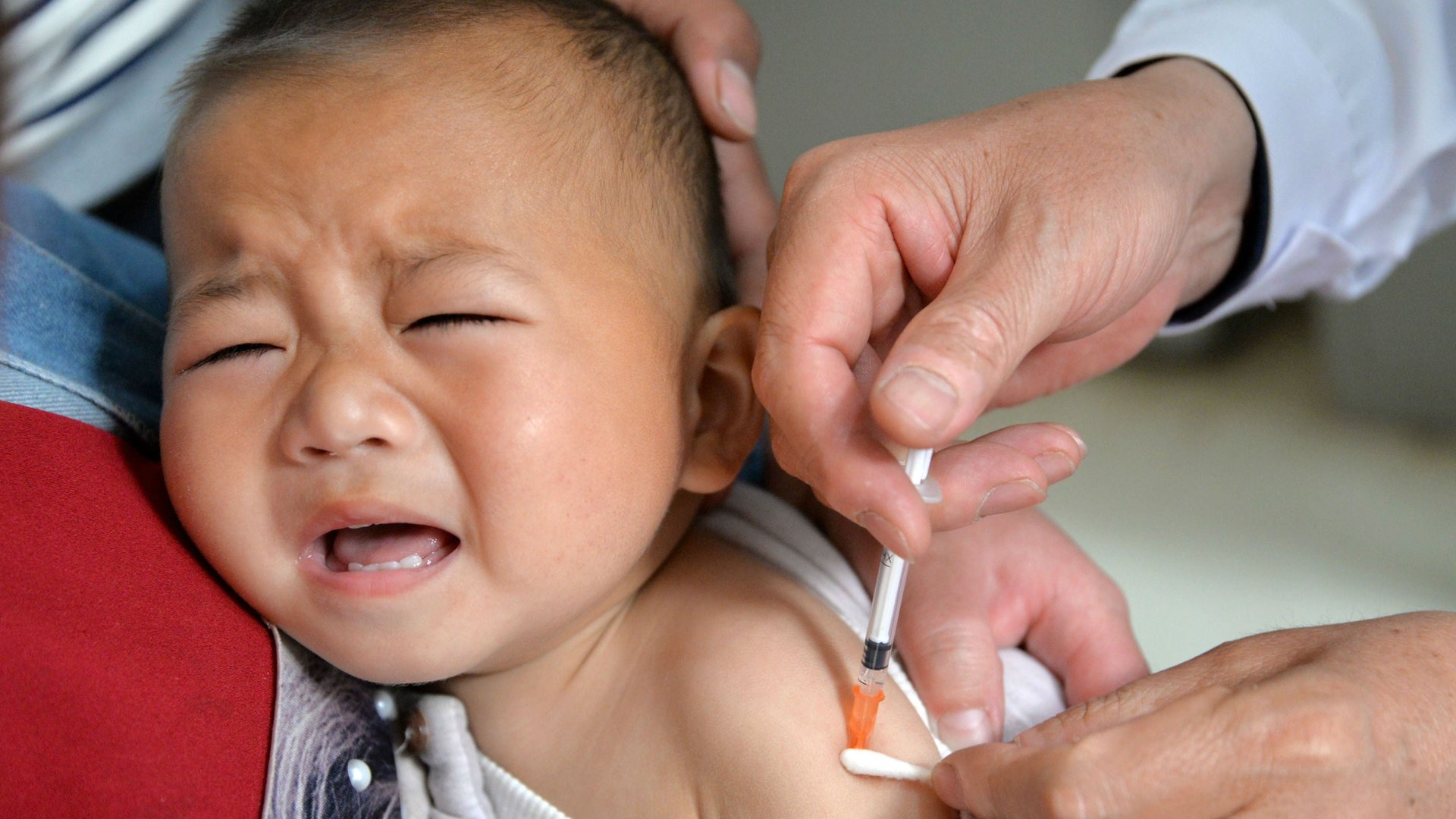Most Americans on both sides of the political aisle are in favor of school-mandated vaccines
Right now, the list of things Americans can agree on wouldn’t fill up a post-it note.


Right now, the list of things Americans can agree on wouldn’t fill up a post-it note.
But there’s one issue that’s well-supported by US residents of all political affiliations—and it might be a surprise to those listening to the current rhetoric coming out of Washington, DC: mandated vaccination against mumps, measles, and rubella (MMR).
Recent survey results from the Pew Research Center show 82% of American adults think schools should force students to get the MMR vaccine.
Although roughly 11% of the 1,549 adults surveyed believe vaccines come with a high risk of mild complications, 88%, regardless of their political affiliation, also think the preventative benefits outweigh any of these consequences. Among parents, those who had children 4 years and younger were the most skeptical about the safety of vaccines, with 17% saying that they came at a high risk of side effects—but 60% of them still said the preventative health benefits were high as well.
All three of the infections prevented by the MMR vaccine are caused by viruses. Mumps and rubella aren’t particularly serious for children, although rubella can cause defects to an unborn fetus if a pregnant women contract it. Measles infections can lead to pneumonia and meningitis, an extremely dangerous infection of tissue around the brain and spinal cord.
MMR shots (given twice, once when the child is an infant and then again between 4 and 6) give children a small dose of a benign form of the virus that allows the body to build up its defenses to these infections. If a vaccine recipients ever encounters the actual viruses, their immune systems are already prepared to fight them off. And it works: There were just over 5,000 cases of mumps in 2016 and both measles and rubella are considered to be eradicated in the Americas (there are still a few cases that pop up each year because travelers can bring back their infections from other countries). Before vaccines were invented in the 1960s, there were hundreds of thousands of cases of these illness each year.
Despite the evidence showing that vaccines prevent children from getting sick and work to kill off populations of pathogens in the long run, there is still a vocal minority concerned about their safety.
Back in 1998, a study published (paywall) in The Lancet connected the MMR vaccine to autism. The study was retracted almost immediately, but some continue to believe there may be a connection, including Robert Kennedy Jr., an environmental lawyer who US president Donald Trump has tapped to chair a “vaccine and environmental safety commission.”
Trump himself is also reportedly a vaccine skeptic. Kennedy told Science Magazine that Trump’s concerns stem from anecdotal evidence of children who were given the MMR vaccine and then developed autism.
Fortunately for parents, Trump’s confirmed pick secretary of health and human services, Tom Price, has said he believes the science showing that vaccines and autism are not related.